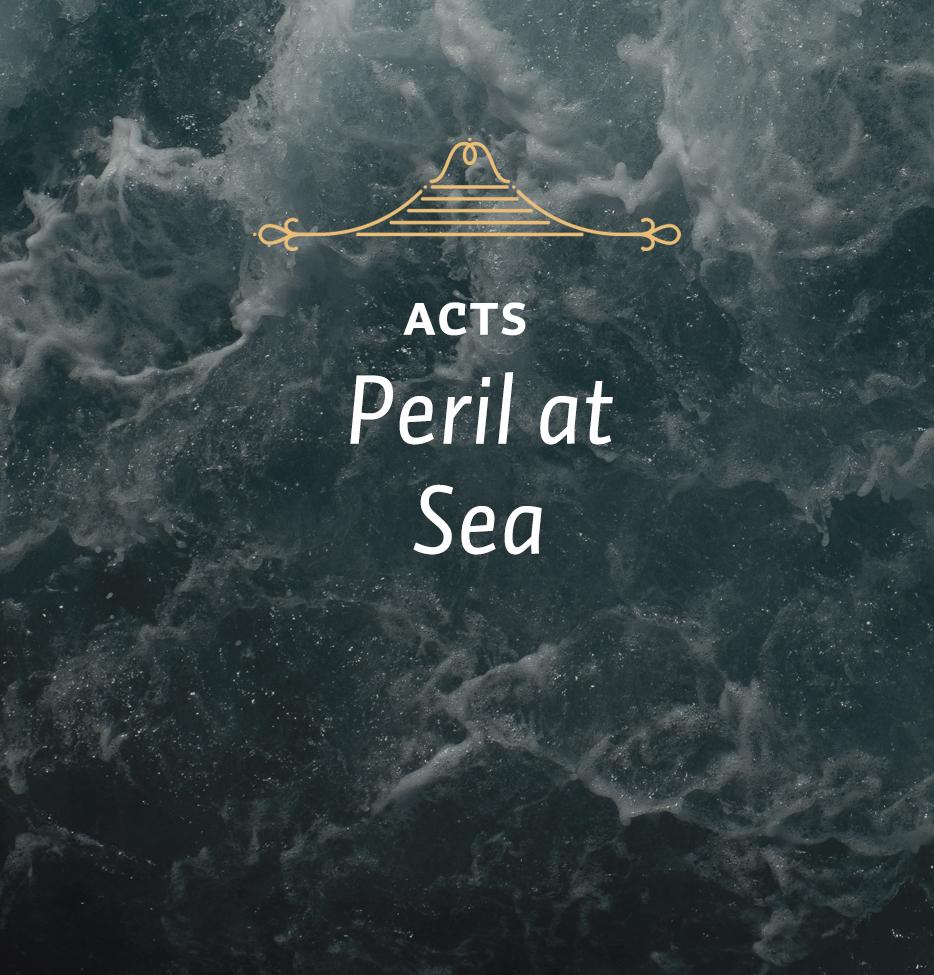Wednesday: When Storms Descend
 https://www.thinkandactbiblically.org/wp-content/uploads/2023/10/Peril-a... 287w, https://www.thinkandactbiblically.org/wp-content/uploads/2023/10/Peril-a... 768w" sizes="(max-width: 580px) 100vw, 580px" />
https://www.thinkandactbiblically.org/wp-content/uploads/2023/10/Peril-a... 287w, https://www.thinkandactbiblically.org/wp-content/uploads/2023/10/Peril-a... 768w" sizes="(max-width: 580px) 100vw, 580px" />
The travelers got to Cnidus after many days, but the wind would not allow them to follow the most direct route west. So they went with the wind and were driven south toward the island of Crete, which they hoped to round and then be able to sail west along the southern sheltered shore. After much effort they got as far as a port called Fair Havens, about halfway along the island.
Fair Havens was not a “fair” place. It must have been named by the Chamber of Commerce to try to get people to visit it, which people normally tried to avoid doing. It was now late in the sailing season. The sailors knew they would not be able to reach Rome before winter. They would have to winter somewhere. “But not Fair Havens,” they must have said. They knew there was a nicer port further along the coast, a place called Phoenix. So when a gentle south wind began to blow they decided to take a chance and go for it.
Paul warned them not to go. Probably God had warned him what would happen, just as he later revealed that no lives would be lost when the ship floundered (vv. 23-25). But sailors don’t listen to landlubbers, certainly not preachers. People rarely listen to preachers about anything. “What does Paul know?” they must have said. “We can do it.” So they started out.
The story tells how the originally gentle breeze turned into a great Mediterranean storm that caused the winds and waves to rage day after day in a terrifying fashion. As Luke tells the story, there was a period of fourteen days in which the men did not see the sun or even the stars. Luke says, “When neither sun nor stars appeared for many days and the storm continued raging, we finally gave up all hope of being saved” (v. 20).
I stop telling the story at this point because I want you to see an interesting contrast between the verse I have just quoted and those that come next. Verse 20 says, “When neither sun nor stars appeared for many days and the storm continued raging, we finally gave up all hope of being saved.” Now notice the words that follow. Paul said,
Men, you should have taken my advice not to sail from Crete; then you would have spared yourselves this damage and loss. But now I urge you to keep up your courage, because not one of you will be lost; only the ship will be destroyed. Last night an angel of the God whose I am and whom I serve stood beside me and said, “Do not be afraid, Paul. You must stand trial before Caesar; and God has graciously given you the lives of all who sail with you.” So keep up your courage men, for I have faith in God that it will happen just as he told me. Nevertheless, we must run aground on some island” (vv. 21-25).
Isn’t that an interesting contrast? The men are in a terrible storm. The mariners, who know how to sail in storms, are so frightened that they have given up all hope of being saved. But this Jewish preacher, who presumably knew very little about ships or storms, said, “Keep up your courage…. Do not be afraid.”
Paul’s words contain several principles by which you and I can keep up our courage and be fearless in the midst of life’s storms. We probably never will be in the midst of a literal storm like this one that is similarly life-threatening. But you and I do experience storms. Storms come into our lives, and sometimes they come quite suddenly and are fierce. One day we are in perfect health. Suddenly we experience pain, and within a matter of hours we find ourselves in the hospital and the diagnosis is grim. “We’ll have to operate at once,” the doctor says. A storm has descended on our lives.
One day we are sitting at home eating. The telephone rings, and someone on the other end says, “I’m sorry, but I have bad news for you. Your son has been killed in a tragic accident.” Or perhaps it is your daughter or wife or husband. The storm has descended.
How are we to stand up in life’s storms?















